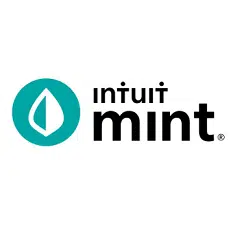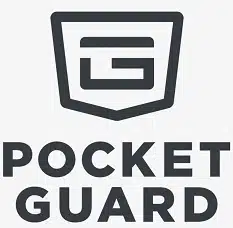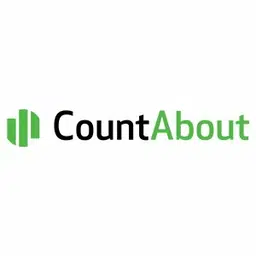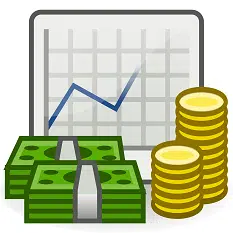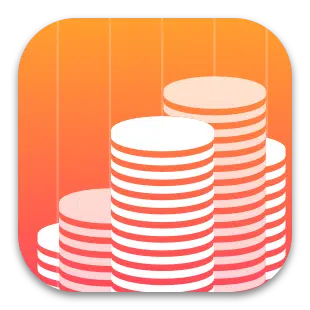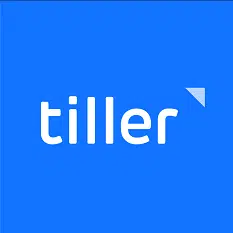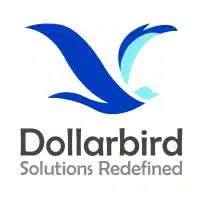Today, the array of options available for managing your money has expanded significantly, thanks to many innovative solutions. Gone are the days when personal finance software merely tracked expenses, or portfolio management tools just tracked your portfolio.
In today's landscape, personal finance tools have evolved into multifaceted platforms that empower users to understand their net worth, strategize asset allocation, and gain advanced insights into their investment portfolios.
In this comprehensive guide, we'll delve into 15 distinct Quicken alternatives (mobile and desktop apps), transforming how you approach financial management.
The rise of user-friendly personal finance apps has revolutionized the accessibility of such tools, with both beginners and seasoned investors benefiting from their features.
Whether you're seeking a fee analyzer to navigate the complexities of investment costs or a personal finance app that seamlessly manages every facet of your financial journey, the diverse alternatives explored in this article are poised to reshape how you interact with your money. These alternatives ensure that your financial aspirations are not only met but exceeded.
What are the best Quicken alternatives today?
- Empower (Formerly Personal Capital)
- Simplifi
- YNAB (You Need a Budget)
- PocketSmith
- MoneyWiz
- Mint
- Banktivity
- EveryDollar (now Ramsey+)
- PocketGuard
- CountAbout
- Goodbudget
- GnuCash
- MoneyDance
- Tiller Money
- Dollarbird
Lets discuss each one of these platforms in-depth.
Empower (Formerly Personal Capital)
Empower, formerly known as Personal Capital, takes the lead as one of the best Quicken alternatives in 2023. The best part? It's absolutely free.
Quicken's strength lies in being a comprehensive financial dashboard, and Empower upholds this legacy while adding its unique features. Unlike traditional budgeting apps, Empower goes beyond basic expense tracking.
It excels at investment tracking, retirement planning, and projecting whether you'll meet your financial goals.
Empower's web-based platform ensures regular updates and a seamless user experience.
One significant advantage of Empower is its cost as mentioned – it's free to use. In fact, I'd argue it is one of the most comprehensive free tools on the internet.
It offers tools to analyze your finances in-depth, providing insights into investments, retirement plans, and intermediate savings goals. While its budgeting and expense tracking features are less intricate than Quicken's, Empower's retirement planner is a standout tool.
The ability to project future financial needs and gauge progress sets it apart. Empower's connection with various banks ensures smooth syncing and minimizes connection issues – a notable contrast to Quicken's common problems.
If you're interested in what Empower has to offer, feel free to read my in-depth review on the platform's tools. Alternatively, just click the link below to get started opening a completely free account today.
Simplifi
Simplifi emerges as a mobile-first budgeting solution, ideal for those on the move. Its intuitive interface connects accounts for automated transaction downloads and categorization.
Simplifi's dashboard provides an overview of your financial health, while its robust reporting and goal-setting features aid in informed decision-making.
As a creation of Quicken, Simplifi offers seamless integration with Quicken's suite. With prices starting at $2.99 per month (annual plan), it's a cost-effective choice for those looking for efficient mobile budgeting solutions. Simplifi's user-friendly design and comprehensive features meet your financial management needs, particularly when you're on the go.
If you're interested in a completely free trial of Simplifi, just click the button below.
YNAB (You Need a Budget)
YNAB caters specifically to budgeting needs, making it a prime choice for individuals focused on creating and maintaining budgets.
YNAB's interface resembles a spreadsheet, and its core principle of giving every dollar a purpose is a powerful budgeting strategy. Users can track real-time spending based on available funds by connecting bank accounts.
While lacking in investment tracking compared to Quicken, YNAB's emphasis on effective budgeting sets it apart.
Though not free, YNAB offers a 34-day free trial. Subsequently, the annual plan costs $14.99 per month or $99 per year. YNAB's four guiding pillars – Give Every Dollar a Job, Embrace Your True Expenses, Roll With The Punches, and Age Your Money – form the foundation of its budgeting philosophy. YNAB's focus on helping users transform their financial lives and build sustainable wealth distinguishes it as a valuable alternative.
PocketSmith
Regarding personal finance tools, PocketSmith shines as a standout option.
Beyond its budgeting and spending tracking features, PocketSmith boasts an intriguing ability to forecast your financial trajectory.
Analyzing your current income, expenses, and spending habits projects account balances up to 30 years into the future.
PocketSmith's unique calendar-based approach organizes transactions, making it easier to visualize income and expenses.
"What if" scenarios offer the power to test various decisions and understand their impact on future finances. With three plans – Basic, Premium, and Super – PocketSmith caters to different user needs, from manual transaction imports to unlimited accounts and extended projections.
MoneyWiz
For those seeking a powerful budgeting tool with a wide-ranging scope, MoneyWiz stands out. Established in 2010, MoneyWiz's compatibility across operating systems, real-time synchronization, and support for 16,000+ banks in 51+ countries make it a versatile option.
With robust budgeting features, multi-level categories, customizable subcategories, and the ability to split transactions, MoneyWiz accommodates various financial needs.
MoneyWiz's investment tracking function is a standout feature, enabling users to monitor stocks, forex, and even cryptocurrencies. It supports exchange transactions and offers customizable graphs and charts for visualization. MoneyWiz offers a freemium model, with a free version offering substantial functionality. To access multi-device syncing and automated transaction downloads, users can opt for the Standard ($49.99) or Premium ($49.99/yr or $4.99/mo) plans.
Mint
Mint, owned by Intuit, the company that previously developed Quicken, offers a free and potent budgeting and expense-tracking solution.
While Intuit acquired Mint in 2010 and later sold Quicken, Mint remains a viable alternative for expense tracking. Its strength lies in budgeting and expense tracking, though it lacks robust investment and retirement planning tools.
Mint issues spending summaries provides alerts for fees and budget categories, and even tracks your credit score.
Mint's cloud-based approach ensures hassle-free access without software downloads or updates. However, users looking for comprehensive investment tools might find Mint insufficient. Its automatic transaction syncing streamlines data entry, but occasional miscategorization requires manual adjustments. Mint is an excellent Quicken alternative for users primarily focused on expense tracking.
Banktivity
Designed exclusively for MacOS (iPhone & iPad) users, Banktivity is a comprehensive personal finance manager. It supports seamless data import from Quicken, making transition effortless.
Banktivity covers budgeting, spending tracking, bill scheduling, and investment monitoring (including real estate) and offers powerful reporting options.
It enables users to track and manage accounts across iOS and Mac devices via a mobile app.
While Banktivity comes with a one-time fee of $69.99, its 30-day trial period without requiring credit card information makes it accessible for exploration. Banktivity 7, the latest version, has enhanced features, including a digitized envelope system for expense allocation. The software's investment and budget management capabilities cater to various financial needs.
EveryDollar (now Ramsey+)
If you're a devoted follower of financial guru Dave Ramsey, EveryDollar could be your perfect fit. EveryDollar follows the zero-based budgeting method popularized by Dave Ramsey himself.
While it's essential to note that EveryDollar comes at a premium – costing $99.99 annually after a 14-day trial (or $12.99 per month) – it offers the unique advantage of including Dave Ramsey's educational materials.
With the ability to sync bank accounts, establish budgets, and track spending, EveryDollar streamlines your financial journey. The tool works across computers, smartphones, and tablets, giving you accessibility. While the price might be a consideration, EveryDollar's integration of Dave Ramsey's Financial Peace University adds educational value to the package, making it a top choice for his enthusiasts.
Streamlined and user-friendly, PocketGuard stands out as a simple budgeting app. It offers a holistic view of your financial accounts – credit cards, checking, savings, investments, and loans.
Its real-time updates and automated categorization of spending contribute to its strength in budgeting. The app leverages your financial data to create a personalized budget based on your spending habits and savings goals.
PocketGuard offers both a free version and a Plus version. The free version provides essential expense tracking and budget oversight. To unlock features like custom categories and tracking cash transactions, users can opt for PocketGuard Plus, priced at $3.99 per month or $34.99 per year. Its proactive approach to budgeting and effortless account synchronization makes it a valuable contender for managing your finances.
You can take a look at PocketGuard here
CountAbout
CountAbout emerges as a prime option for those transitioning from Quicken. Founded to offer an alternative to Quicken, CountAbout distinguishes itself by allowing data import from Quicken (and Mint).
This feature smoothens the transition process, ensuring users retain their financial data. CountAbout offers two subscription options – Basic ($9.99) and Premium ($39.99), the latter including automatic transaction downloads.
Like Quicken, CountAbout boasts split transactions, recurring transactions, attachment features, and budgeting capabilities. CountAbout's web-based platform and multi-factor security make it convenient and secure. The ability to import data from Quicken adds to its appeal, offering a seamless alternative for those familiar with Quicken's interface.
Goodbudget
Goodbudget embraces the envelope budgeting method and transforms it into a digital tool. The app allows you to allocate funds for various spending categories, mirroring the physical envelope system.
It's particularly effective for those managing tight budgets or striving to allocate funds accurately. Goodbudget caters to both iOS and Android users, ensuring accessibility across devices.
The app's free version offers core features, including expense tracking and budget management. Users can upgrade to Goodbudget Plus to access custom categories, cash transaction tracking, and envelope adjustments. Priced at $34.99 per year, Goodbudget Plus is an affordable option for those seeking a digital envelope budgeting tool. Its simplicity and adherence to a proven budgeting technique make it an excellent choice for individuals seeking discipline in their spending.
GnuCash
Designed for those seeking a comprehensive accounting solution, GnuCash stands out as an open-source software catering to personal and small business needs. With a focus on double-entry accounting, GnuCash ensures accurate tracking of income, expenses, and investments.
While not as user-friendly as some other options, GnuCash offers robust features for financial management.
One of GnuCash's remarkable attributes is its ability to import data from Quicken, streamlining user transition. It supports personal and small business finances, including income and expense tracking, multi-entry bookkeeping, invoicing, and more. GnuCash's open-source nature offers flexibility for those willing to invest time in understanding its functionalities.
MoneyDance
While many financial apps embrace cloud-based platforms, MoneyDance offers downloadable software. This application mirrors traditional budgeting methods, allowing you to download transactions, pay bills, and categorize expenses. It learns from your patterns, streamlining expense categorization.
MoneyDance's dashboard offers an at-a-glance view of your financial status, accompanied by detailed reports and graphs.
Available for both Mac and Windows, MoneyDance comes at a one-time cost of $49.99. The software's tangible interface appeals to those who prefer offline solutions for financial management.
Tiller Money
Tiller Money is a standout choice for those seeking spreadsheet-based financial management. Tiller's unique approach involves automating spreadsheets integrating with Google Sheets or Microsoft Excel.
By linking your accounts, Tiller populates your spreadsheets with transaction data, creating customized budgeting and tracking solutions.
Tiller's subscription model, priced at $6.58 per month ($79 per year), offers automation while maintaining control over your data.
Tiller empowers users to craft personalized templates for tracking net worth, budgeting, or any other financial aspect. The platform's adaptability and control make it an appealing alternative for users who value the flexibility of spreadsheets.
Dollarbird
Diverging from the traditional category-based approach, Dollarbird introduces a novel calendar-based method for managing finances. This app excels in tracking cash flow on both a monthly and daily basis.
Its dynamic calendar empowers users to visualize and project their income and expenditures, making it suitable for those with variable incomes.
Dollarbird's calendar-based approach allows for planning future and recurring expenses, fostering financial foresight. While it doesn't automatically connect to bank accounts, it accommodates manual entry of transactions and predictions. Dollarbird offers free and Pro plans, with the latter allowing up to 20 calendars for collaborative use.
Wrapping it up
In a world where financial management extends beyond mere expense tracking, these 15 Quicken alternatives emerge as beacons of innovation and opportunity.
Each option, carefully curated to address specific financial needs, empowers users to embark on a journey of sound financial decision-making, investment insight, and budget mastery. Whether you're a meticulous investor, a budgeting enthusiast, or a seeker of holistic financial perspectives, these alternatives offer personalized approaches that align with your goals.
As we conclude this journey through the landscape of Quicken alternatives, it's clear that the world of personal finance management is evolving rapidly.
From Empower's comprehensive dashboard to Goodbudget's digital envelope system, there's a tool for everyone. It's essential to remember that while these tools can enhance your financial acumen, the real power lies within your financial habits and aspirations.
Explore, experiment, and embrace the tool that resonates with your vision, and may your journey toward financial prosperity be both enriching and fulfilling.
What should I consider when choosing a personal finance tool?
Your choice should align with your specific needs. Are you an investor seeking in-depth portfolio analysis or focused on budgeting? Consider factors like cost, ease of use, investment tracking, and device compatibility.
Are these tools secure to use?
Most of these tools in our list prioritize security through encrypted connections and multi-factor authentication. However, always practice good security habits, such as using strong passwords and updating your devices.
Can I migrate data from Quicken to these alternatives?
A: Many alternatives offer data migration options, simplifying the transition. Some tools, like CountAbout and MoneyDance, even facilitate seamless imports from Quicken.
How do I determine the right tool for me?
A: Assess your financial goals and preferences. Do you prefer cloud-based or offline tools? Are you looking for investment insights or budgeting assistance? Once you identify your priorities, finding the perfect fit is easier.
Are there free options available?
A: Yes, several alternatives offer free versions with limited features. While they may not be as comprehensive as premium versions, they can still provide valuable insights into your finances.
Can these tools help me improve my net worth?
A: Absolutely. Many tools offer features like investment tracking, retirement planning, and budget analysis, all of which contribute to enhancing your financial net worth over time.




